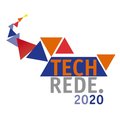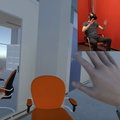Latest News
16 June 2020
Researchers create a new class of rate-sensitive mechanical metamaterials

Researchers at the Department of Biomechanical Engineering of Delft University of Technology have created a new class of metamaterials that can dynamically switch their mechanical behaviour. It may form the basis for practical applications such as fall-protective clothing for the elderly. The results are to appear in the journal Science Advances on 17 June.
11 June 2020
Help from an unexpected quarter: geosciences data techniques can help predict corona spread

An international team of scientists is studying the possibility of using data assimilation, a data technique from geosciences, to predict the spread of coronavirus and the efficacy of certain measures. TU Delft geoscientists on the team think that data assimilation might prove a useful tool for the RIVM epidemiologists. A paper on the subject has been submitted to scientific journal Foundations of Data Science.
09 June 2020
Undecided citizens are the deciding factor when introducing corona app

The Dutch have widely varying opinions on the desirability of a tracking and tracing corona app
08 June 2020
Francine Houben TU Delft Alumnus of the Year 2020

Francine Houben, founder and Creative Director of Mecanoo Architects, has been elected TU Delft Alumnus of the Year 2020.
08 June 2020
Francine Houben TU Delft Alumnus of the Year 2020

Francine Houben, founder and Creative Director of Mecanoo Architects, has been elected TU Delft Alumnus of the Year 2020.
04 June 2020
Universities of technology join forces in Techrede address

The four universities of technology in the Netherlands (Delft, Eindhoven, Twente and Wageningen) appeal to political leaders in The Hague to make technological innovation a structural part of their agendas. Technological innovations are a vital link in the transition process to a resilient, safe and sustainable future. The post-corona future comes with new social challenges that require new solutions. The first Techrede address is scheduled to take place on 1 October and aims to impress upon everyone not only the importance of these types of innovations but the importance of public involvement as well.
04 June 2020
A virtual inner voice can help develop social skills

Social interactions make up a large part of our life, but social skills don’t come naturally to all. You can train them with self-help books or courses, and in recent years also with training systems based on supporting technologies such as virtual reality.
03 June 2020
Research into a climate-neutral built environment united in TU Delft Urban Energy Institute

At TU Delft, various aspects of that energy use are being researched, with the aim of drastically reducing the use in urban areas and generating the remaining energy from sustainable sources. This research is now officially bundled in the Urban Energy Institute.
02 June 2020
TU Delft launches first eight TU Delft AI Labs

How can artificial intelligence (AI) accelerate scientific progress? Delft scientists will investigate this question in eight new 'TU Delft AI Labs'.
29 May 2020
The real risks of a pandemic

The COVID-19 pandemic is a reflection on our society and shows us just how vulnerable we are, despite all the advanced mathematical models that are supposed to make policy- and decision-makers aware of the potential risks associated with a pandemic. ‘Yet,’ write scientists Pasquale Cirillo (TU Delft) and Nassim Nicholas Taleb (New York University) in their recently published paper in Nature Physics, ‘most of these models do not look at the tail risk of infectious diseases, and there is very little questioning of the reliability of the various parameters.’ According to the scientists, extreme value theory (EVT) offers a solution for modelling the actual risks of a pandemic.
